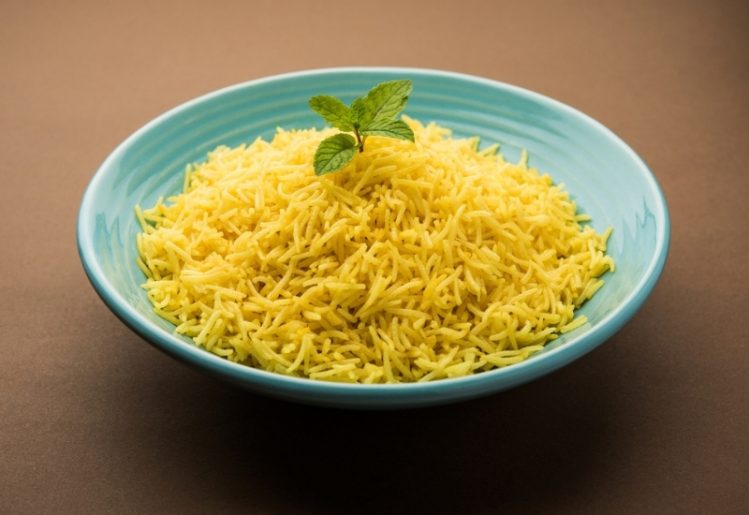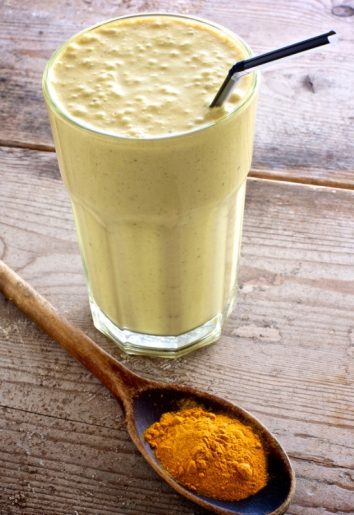One of the hottest trends in health and wellness is curcumin, a compound found in the popular spice turmeric. Turmeric is actually comprised of over 100 distinct compounds. The most significant of these compounds is curcumin. Here is what you need to know about the health benefits of curcumin and why many health enthusiasts are diligent about making it an integral part of their diet.
What is Curcumin?
 The health benefits of curcumin, a compound found in the spice turmeric, are becoming more widely known. Turmeric is a plant that hails from Central America and India whose root is used as a common ingredient in most Indian cuisines. Its distinctive bright yellow color is easily recognized; it is the curcumin it contains that gives turmeric this unique color.
The health benefits of curcumin, a compound found in the spice turmeric, are becoming more widely known. Turmeric is a plant that hails from Central America and India whose root is used as a common ingredient in most Indian cuisines. Its distinctive bright yellow color is easily recognized; it is the curcumin it contains that gives turmeric this unique color.
The Mayo Clinic defines curcumin as a functional food. This designation means that the food has potentially positive health benefits above and beyond the basic nutrition that it provides. Here are a few of the standout nutritional facts when looking at one tablespoon of ground turmeric.
- approximately 25 calories
- 4.4 grams of carbohydrates
- less than one gram of fat
- 1.4 grams of fiber
- measurable amounts of iron, manganese, vitamin B6 and potassium
Health Benefits of Curcumin
Boasting a host of antioxidants and numerous anti-inflammatory benefits, there is no doubt that curcumin is a nutritional superstar. While it can be challenging to list all of the health advantages of this spice, here are a few of the key benefits that you need to be aware of.
Anti-inflammatory Agent
One of the most promising bodies of research regarding curcumin suggests that it acts as an anti-inflammatory agent in the body. This makes it potentially beneficial for people fighting inflammatory conditions such as diabetes and arthritis.
Improves Skin Health
Curcumin’s anti-inflammatory properties also make it an effective compound for promoting the health of your skin. In addition to boosting the radiance of your complexion, curcumin can also soothe acne symptoms, help to protect against psoriasis and eczema flare-ups and increase the rate of wound healing.
Promotes Cellular Health
One of the most studied potential benefits of curcumin consumption is how the compound may be able to help protect cellular health. A growing amount of research is beginning to demonstrate that curcumin may target cells that can lead to cancer development. The strongest correlation has been seen in the protection against unhealthy cell growth in the breast, bowel, stomach and skin. This protection can be largely attributed to the ability of curcumin to guard against free radicals.
Supports Weight Loss Efforts
Many people turn to curcumin as a tool to help them in their weight loss efforts. Preliminary research shows that this herbal compound is supportive in the quest to maintain a healthy weight.
Helps Maintain a Healthy Mood
In a study on rats, it was demonstrated that a higher intake of curcumin increased levels of the body’s brain-derived neurotrophic factor (BDNF). Lower levels of BDNF have been linked to an increased rate of depression.
Protects Cognitive Health
Like depression, the onset and acceleration of Alzheimer’s disease is also related to a decrease in BDNF. By helping to keep the critical nerve cells healthy and functioning at optimal levels, the addition of curcumin to the diet may also help protect against degenerative cognitive conditions. The way curcumin works to guard the memory and boost overall brain function may also be related to its ability to promote healthy levels of BDNF.
How to Incorporate Curcumin Into Your Diet
Now that you understand all of the healthy benefits of curcumin, you are probably wondering how you can incorporate this spice into your diet. Here are just a few of the ways that you can make this compound found in turmeric an integral part of your healthy eating routine.
Blend it Into Your Next Smoothie
 Fresh turmeric root is a great addition to your morning smoothie. You can also add a bit of the ground spice to get in your daily dose of curcumin. While it normally possesses a strong flavor, putting turmeric in a smoothie will usually disguise it when used in moderation.
Fresh turmeric root is a great addition to your morning smoothie. You can also add a bit of the ground spice to get in your daily dose of curcumin. While it normally possesses a strong flavor, putting turmeric in a smoothie will usually disguise it when used in moderation.
Here is a great, easily customizable recipe that will give you all of the health benefits of curcumin in a convenient and delicious smoothie that can be enjoyed daily.
Turmeric Fruit Smoothie
Ingredients
1 – 1 1/2 c. dairy-free milk of choice (coconut or almond milk works great!)
1 banana, peeled and chopped
1 c. fruit of choice, chopped (mango, blueberries, goji berries, pineapple, orange and papaya all work well)
2-3 inches fresh turmeric root, peeled and chopped (or 1-2 tsp. turmeric powder)
1 tsp. fresh ginger, peeled and chopped
1 tsp. coconut oil
Directions
- Place all ingredients into a blender; blend until smooth.
- Pour into cups and enjoy!
Topping Vegetables
The peppery aftertaste of turmeric makes it a good addition to nearly any roasted vegetable recipe. The spice works particularly well with roasted cauliflower or any type of root vegetables such as potatoes or carrots. You may also want to try sprinkling it on your favorite greens, including kale and collards.
This yummy recipe for roasted vegetables with turmeric gives you the anti-inflammatory and other health benefits of curcumin, and makes a healthy and flavorful addition to any meal.
Turmeric Roasted Vegetables
Ingredients
2 c. potatoes of choice, peeled and cubed
1 c. broccoli florets
1 c. cauliflower florets
1 c. carrots, peeled and chopped
1/2 c. radishes, cut in half
1/2 c. turnips, cut in half
3 tbsp. olive oil
1-2 tsp. turmeric powder
1/2 tsp. cumin
1/4 tsp. black pepper
Salt to taste
Directions
- Preheat oven to 425 degrees.
- In a large bowl, combine all vegetables with olive oil. Toss until completely coated. Add salt to taste.
- Spray a large baking sheet with cooking spray. Place vegetables in a single layer, arranging them evenly across the sheet.
- Roast vegetables for 30 – 35 minutes, or until vegetables reach desired tenderness, stirring halfway through.
Take a Supplement
Because curcumin is not easily absorbed into the bloodstream, you will see the greatest benefits by taking it in supplement form. It is easy to find curcumin in supplement form online or at nearly any health food store.
When the genetic material of the body’s cells becomes irreparably damaged, they are programmed to destroy themselves via a natural mechanism called apoptosis. When this process is not working properly, unhealthy cell growth can result. Curcumin works specifically to support the healthy functioning of apoptosis within the body’s cells.
Because there are no serious side effects to being purposeful about increasing your intake of moderate amounts of curcumin, you have nothing to lose by giving it a shot.


